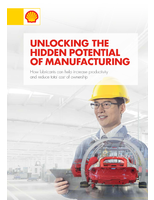ASTM Introduces aquatic play equipment standard.
Press Release Summary:
Developed by Subcommittee F24.70 on Water Related Amusement Rides and Devices, ASTM F2461 - Practice for Manufacture, Construction, Operation and Maintenance of Aquatic Play Equipment answers emerging need for standards for aquatic play equipment industry. Andreas Tanzer, chair of F24.70, says the new standard compiles common terms, methods, and practices. It will also ensure end-users that there is a means of manufacturing, testing, and operation.
Original Press Release:
ASTM Aquatic Play Equipment Standard Answers Growing Industry Need
W. CONSHOHOCKEN, Pa., 14 July 2009-The popularity of water-based amusement parks continues to grow throughout the world, and this growth has led to an emerging need for standards for the aquatic play equipment industry. ASTM International Committee F24 on Amusement Rides and Devices answers this need with a newly approved standard, ASTM F2461, Practice for Manufacture, Construction, Operation and Maintenance of Aquatic Play Equipment.
ASTM F2461 was developed by Subcommittee F24.70 on Water Related Amusement Rides and Devices. Andreas Tanzer, chair of F24.70, and director - innovation, research and standards, ProSlide Technology Inc., says the new standard will provide inspectors and state officials with a single source of information that can be applied uniformly among the many methods of aquatic play equipment manufacture.
"A common practice was necessary to ensure that a minimum best practice was established based on the industry's use of aquatic play equipment," says Tanzer. "The creation of this standard allows the common use of terms, methods and practices to be compiled into a one-stop location."
Tanzer says that ASTM F2461 will provide information and methods for park operators as they install aquatic play structures. "End users will be assured that there is a means of manufacturing, testing and operation of these structures," says Tanzer.
The subcommittee will continue ongoing work on ASTM F2461 and welcomes participation in its standards developing activities. "There are currently two task groups that exist to further the research on water impact from aquatic play devices as well as water quality," says Tanzer. "There is work to be done to integrate other standards that are being or have been developed to further complement ASTM F2461."
"We would like to have more manufacturers of aquatic play equipment directly involved during the semiannual meetings, as well as our virtual meetings," says Tanzer. "This direct input allows the subcommittee to accelerate the process of getting to the heart of matters concerning aquatic play structures. Users of aquatic parks are another group that can bring forth real life situations that can help to mold and solidify the content of the standard."
In addition to ASTM F2461, Subcommittee F24.70 has developed ASTM F2376, Practice for Classification, Design, Manufacture, Construction and Operation of Water Slide Systems.
ASTM International standards are available for purchase from Customer Service (phone: 610-832-9585; service@astm.org) or at www.astm.org.
For technical information, contact Andreas Tanzer, ProSlide Technology Inc., Ottawa, Ontario, Canada (phone: 613-526-5522; andreast@proslide.com). ASTM Committee F24 meets on Oct. 15-17 in Toronto, Ontario, Canada.
ASTM International welcomes and encourages participation in the development of its standards. ASTM's open consensus process, using advanced Internet-based standards development tools, ensures worldwide access for all interested individuals. For more information on becoming an ASTM member, please contact Leonard Morrissey, ASTM International (phone: 610-832-9719; lmorriss@astm.org).
Established in 1898, ASTM International is one of the largest international standards development and delivery systems in the world. ASTM International meets the World Trade Organization (WTO) principles for the development of international standards: coherence, consensus, development dimension, effectiveness, impartiality, openness, relevance and transparency. ASTM standards are accepted and used in research and development, product testing, quality systems and commercial transactions around the globe.



